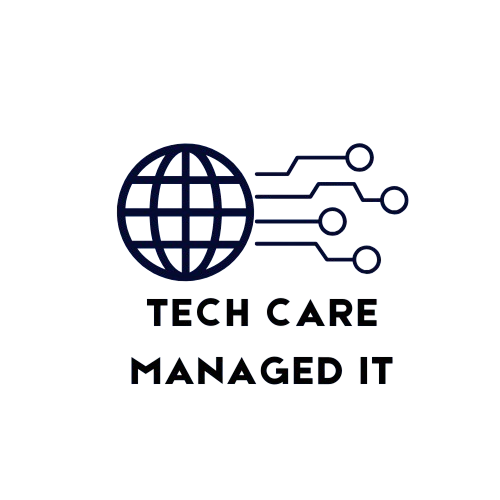Remote closing is reshaping the way businesses close deals in today’s increasingly digital world. Unlike traditional sales, remote closing focuses on securing agreements without face-to-face meetings, relying on virtual communication channels such as video calls, email, and chat platforms. This method has become essential for businesses looking to expand globally, reduce overhead costs, and adapt to remote work trends. Learning remote closing skills allows individuals to tap into a wide array of opportunities, whether in B2B sales, freelance projects, or corporate sales roles. Fortunately, a growing number of platforms offer a remote closing course free of charge, making this skill accessible to anyone willing to invest time and effort. This guide explores why learning remote closing matters, how to access quality free courses, and how to apply these skills to grow professionally.
Understanding Remote Closing
Remote closing refers to the process of finalizing sales transactions without in-person interaction. It is especially relevant in a world where remote work and digital communication have become the norm. Remote closers use a variety of tools, including CRM systems, video conferencing platforms, and sales automation software to manage leads and close deals. One of the core differences between traditional and remote closing is the emphasis on written and verbal communication tailored to virtual environments. Remote closing also demands adaptability, as sellers must interpret customer needs without physical cues. The skill set for remote closing includes emotional intelligence, negotiation techniques, and mastery of digital tools. This makes it a high-demand skill for businesses in industries ranging from tech to consulting.
Benefits of Learning Remote Closing for Free
Taking a remote closing course free provides several advantages, particularly for individuals aiming to enter the sales field without upfront costs. First, it eliminates financial barriers, making valuable education accessible to anyone. Second, it allows learners to explore the skill without a significant investment, which is ideal for testing interest in sales careers. Third, remote closing training often includes real-world examples and simulations that prepare learners for practical challenges. This skill can improve career mobility, enabling learners to work as freelancers, join startups, or secure corporate roles. Moreover, remote closing offers flexibility; once learned, the skill can be applied across industries and geographic locations. Free courses also make it easier for learners to experiment with different methods and techniques, ensuring they find the style that works best for them.
Types of Remote Closing Courses Available for Free
There are many platforms offering a remote closing course free, each providing a unique approach to learning. Popular online learning platforms like Udemy, Coursera, and HubSpot Academy offer beginner-friendly programs. YouTube is another rich resource where professionals share tips and live demonstrations for no cost. Many sales communities, forums, and social media groups also offer free learning materials and discussions. Webinars hosted by industry experts give learners an opportunity to engage directly with instructors. Email-based courses offer structured lessons delivered over days or weeks, allowing learners to absorb information at their own pace. These diverse options make it easier to choose a learning method that suits your schedule and learning style.
Key Skills Covered in Remote Closing Courses
Remote closing courses—whether free or paid—generally focus on a set of core skills designed to make a remote salesperson effective. These include:
- Building rapport remotely: Techniques for creating trust without physical interaction
- Understanding buyer psychology: Learning how to anticipate objections and influence decisions
- Effective communication: Mastery of verbal and written communication for virtual selling
- Negotiation and objection handling: Methods to overcome buyer concerns and seal deals
- Using CRM tools: Leveraging customer relationship management software for efficiency
- Closing techniques: Proven methods tailored for remote sales environments
Mastering these skills helps remote closers establish credibility, increase conversion rates, and maintain strong client relationships. Courses often incorporate interactive exercises so learners can apply these techniques in real-world scenarios.
How to Choose the Best Free Remote Closing Course
Finding the right remote closing course free requires careful evaluation. Credibility is crucial—look for courses offered by recognized sales professionals or reputable platforms. Examine course content to ensure it covers key remote closing skills relevant to your career goals. Reviews and testimonials can give insight into the course’s effectiveness and quality. Look for courses that provide practical exercises or role-playing scenarios rather than just theoretical knowledge. Check if the course offers additional resources such as cheat sheets, templates, or community support. Finally, consider the course format—whether self-paced, video-based, or live sessions—to match your preferred learning style.
Step-by-Step Guide to Getting Started
Once you’ve identified a promising remote closing course free, a structured approach will help you maximize learning.
- Enroll in the course: Choose a platform and register for the free course.
- Set learning goals: Define what you want to achieve and how much time you can commit.
- Create a learning schedule: Dedicate consistent time to study and practice.
- Practice actively: Use simulations, role plays, or real-life scenarios to reinforce skills.
- Join online communities: Engage with peers and instructors for networking and feedback.
- Track progress: Maintain a log of skills acquired and areas needing improvement.
- Apply what you learn: Use your new skills in freelance projects or sales opportunities.
Following a structured learning approach ensures that you gain maximum value from free courses while steadily improving your remote closing capabilities.
Tools and Resources to Enhance Learning
Learning remote closing can be supported with various tools and resources. These include:
- CRM software such as HubSpot, Salesforce, or Zoho
- Video conferencing tools like Zoom or Microsoft Teams
- Sales automation platforms such as Outreach or SalesLoft
- Books and e-books on sales psychology and closing strategies
- Podcasts and webinars hosted by sales experts
- Networking platforms such as LinkedIn to connect with mentors and peers
These tools complement course learning, making it easier to practice and integrate remote closing into daily workflows.
Common Challenges in Learning Remote Closing
Learning remote closing comes with its own set of challenges. One major hurdle is staying motivated during self-paced courses, especially without formal deadlines. Practicing without live clients can limit real-world experience. Overcoming fear of remote selling, especially for beginners, can also be difficult. Adapting to various industries and client needs requires continuous learning. Communication without physical cues demands stronger listening skills and empathy. Technical challenges, such as navigating CRM tools, can also slow progress. Recognizing these challenges helps learners prepare strategies to overcome them effectively.
Applying Remote Closing Skills in Real Life
Once you’ve completed a remote closing course free, applying your skills effectively is crucial. Start by using simulations or role-playing exercises to build confidence. Then, apply these skills to small projects, freelance work, or internal sales within your organization. Networking with other sales professionals can also provide valuable opportunities to practice. For freelancers and entrepreneurs, remote closing can become a core business skill to secure clients without geographic limitations. Continuous improvement is essential—practice, learn from feedback, and adapt your methods. By mastering remote closing, you gain a highly valuable skill set that opens doors to global opportunities.
FAQ
Q1: What is a remote closing course?
A remote closing course teaches techniques to close deals without in-person interaction, using virtual communication tools and strategies tailored to remote sales.
Q2: Are free remote closing courses effective?
Yes, many free courses offer high-quality training, especially those from reputable platforms and sales experts. However, learners should verify the credibility of the course before enrolling.
Q3: How long does it take to learn remote closing skills?
Learning time varies depending on the course structure, but dedicated learners can gain essential skills in a few weeks with consistent practice.
Q4: Can remote closing be learned without prior sales experience?
Absolutely. Many remote closing courses are beginner-friendly, offering foundational sales skills that anyone can learn and build upon.
Q5: What tools do I need for remote closing?
Essential tools include CRM software, video conferencing platforms, sales automation tools, and communication apps to manage leads and facilitate interactions.
Takeaway
Learning remote closing has never been more accessible thanks to the abundance of remote closing course free options online. These courses equip learners with essential skills to adapt to the modern sales environment without financial investment. By carefully selecting a course, practicing consistently, and leveraging tools and resources, anyone can become an effective remote closer. Remote closing skills not only enhance career opportunities but also empower individuals to work flexibly and connect with clients worldwide. With determination and structured learning, mastering remote closing is well within reach.









